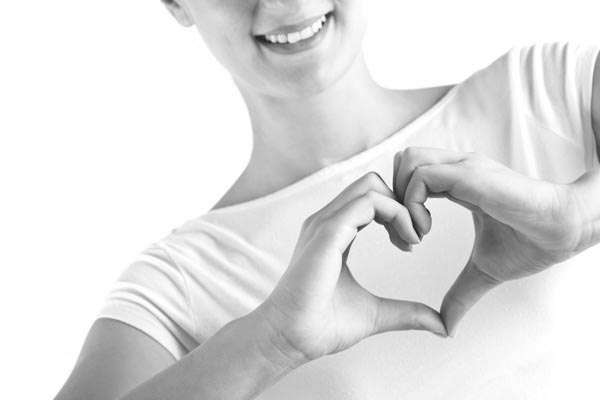

Making the call for an IVF consultation is never easy and we understand that taking the first step can seem like a daunting prospect. However, at IVI we’re here to help and to let you know that you’re not alone.
Our dedicated team of specialists are here to answer any questions you have regarding the IVF process and to ensure that your experience at IVI lives up to your expectations.
So, here are the seven steps you’ll take when you decide to undergo the IVF process.
Step One: Meeting an IVF Specialist
Your first step towards a happier life begins with meeting your IVF specialist. During this appointment, your specialist will review the information you have provided and discuss any previous tests or treatments you have undergone. Once they’ve discussed and addressed any concerns or questions, they will recommend how best to proceed.
It is also important to note that during your meeting, your IVF specialist may suggest carrying out certain tests to assess your uterus and ovarian function. Please understand that these are routine procedures and may be suggested to determine the best approach for your treatment. If you would like more information on this topic, please click here.
Step Two: The Natural Menstrual Cycle
Once you’ve had the initial meeting with your IVF specialist, you will be given medication that will suppress your natural menstrual cycle. This is to ensure that the medication used in the next stage will be more effective.
The medication comes in two variations:
- A daily injection (which your specialist will teach you how to use)
- A nasal spray
Your specialist will advise on which mediation will be best for you, and you will then continue to use this for around two weeks.
Step Three: Strengthening the Egg Supply
Now that your natural cycle has been suppressed, the next stage will be to take a fertility hormone called follicle stimulating hormone (FSH). Again, similar to step two, this is a process that you continue for 10-12 days.
This is important because FSH increases the number of eggs your ovaries produce. This means due to the increase of eggs it is likely more eggs will be fertilised. More eggs mean a greater choice of embryos to use in your treatment, which is extremely important for your success rate.
Step Four: Progress Evaluation
The clinic will carry out routine check-ups on your progress, and a formal evaluation will take place at the end of the process. Vaginal ultrasound scans will be used to monitor your ovaries, which are sometimes (if required) followed by blood tests.
Around 34-38 hours before your eggs are collected, you’ll be given one final hormone injection that will help your eggs to mature.
Step Five: Collecting Your Eggs
During this process, sedation is required. Your eggs will then be collected using a needle that will pass through the vagina and into each of the ovaries under the guidance of our ultrasound. While this may sound invasive and slightly uncomfortable, our trusted and dedicated IVF specialists stress that this is a minor procedure, only lasting around 15-20 minutes.
Step Six: Fertilising the Eggs
Once the eggs have been collected, they will be mixed with your partner’s (or donor’s) sperm in our laboratory. The eggs are held in a special media and cultured in an incubator until insemination.
Two days after fertilisation, normal embryos will be between two and six cells. Three days after fertilisation, normal embryos will be between seven and nine cells.
On the fourth day of fertilisation, most normal embryos will have reached the morula stage (too many cells to count with a microscope). Then, after 16-20 hours have passed, they are checked to see if any eggs have been successfully fertilised.
Finally, hormone medicines will be supplied to aid in preparation for lining the womb to receive the embryo. The usual process for this is via pessary, injection, or gel.
Step Seven: Transferring the Embryo
A few days after the eggs are collected, the embryos are transferred into the womb via a catheter that is inserted into the vagina. This procedure is far simpler than standard egg collection and is similar to having a cervical screening observation, meaning in most cases, sedation is not required.
How many embryos transferred during this step depends on your age, though, this will be discussed before the treatment starts, to spare any confusion. Depending on your age, the process will differ slightly. Below is a simple outline of each age-appropriate procedure:
Women Under 37
Women under thirty-seven only require a single embryo transfer. Doctors usually consider using two embryos only if the quality of one embryo is not high enough. In the third cycle, no more than two embryos should be transferred.
Women aged 37-39
Again, women within this age range should have a single embryo transfer. A double embryo transfer will only be required if no high-quality embryos are found. Similarly, no more than two embryos should be transferred during the third cycle.
Women aged 40-42
Women within this age bracket may have a double embryo transfer, if necessary. If any suitable embryos are left over, it is likely they will be frozen for future IVF attempts.
Once the procedure is completed, you will be required to remain at the clinic for at least an hour. However, you can go home the same day. It is strongly advised that you do not drive, as the anaesthetic will still be in your system.
For further information, please don’t hesitate to get in touch, our friendly team are always here to help – 0800 52 00 161.





Comments are closed here.